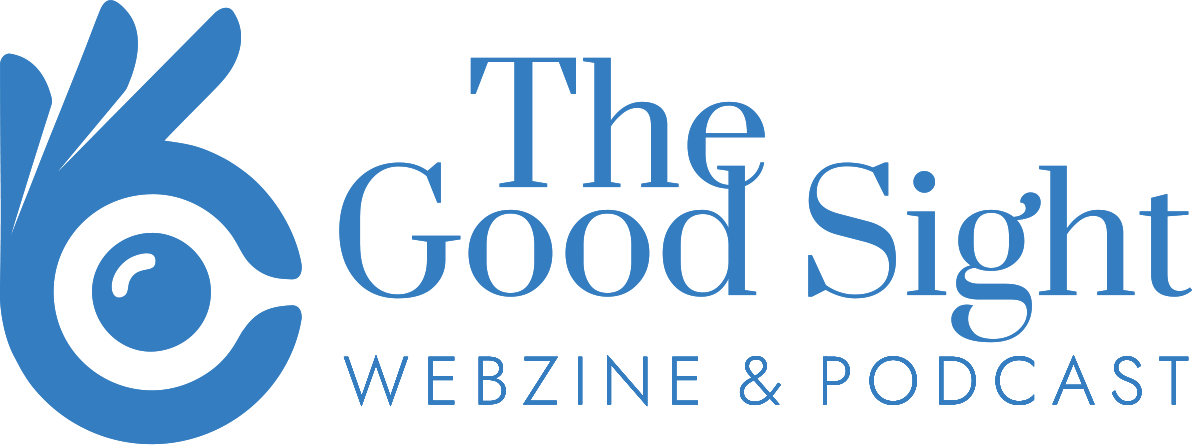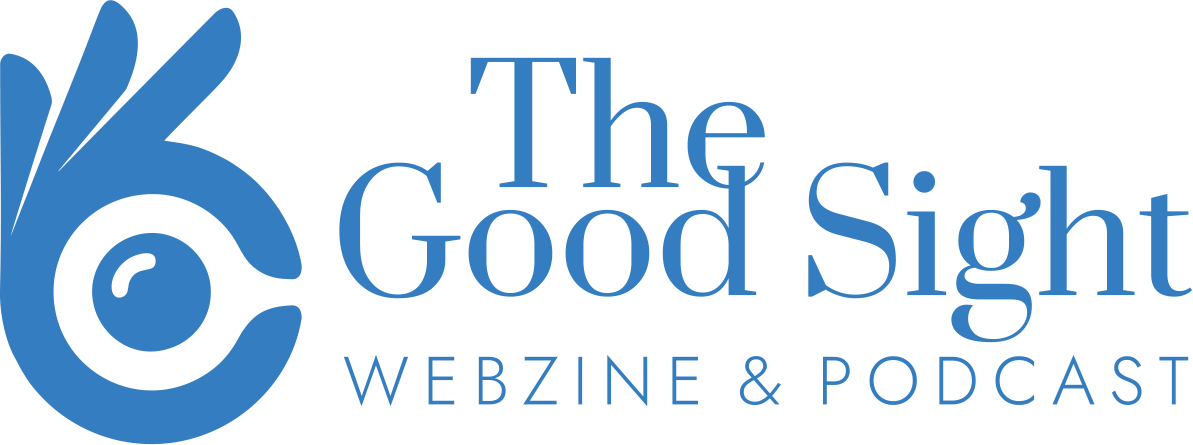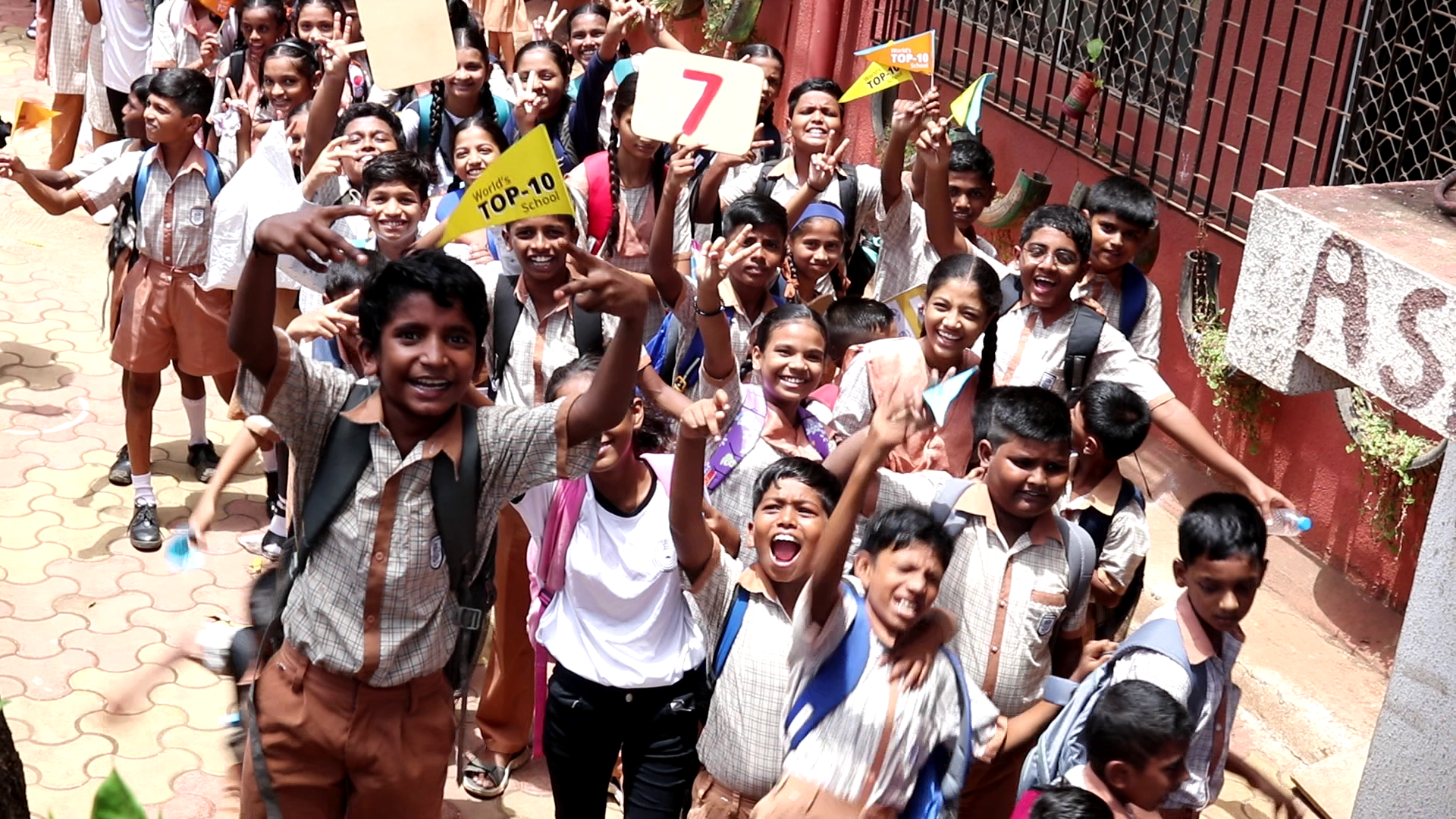Magic Bus India Foundation aims to take life skills education to nearly 2 million adolescents in the next 3-5 years.
Today 253 million[1] adolescents in India cross the threshold from childhood into livelihood, with only one third of them having a higher secondary qualification[2]. Out of these, only 2 in 5 will have the life skills and employability sills necessary to secure stable employment[3].
Over 50%[4] of employers believe that for young people to succeed, they should be equipped with the right skills to transition from education to employment. If this not addressed, the vicious cycle of poverty will continue to create a cascading effect on society as a whole. A problem of this magnitude and complexity, requires a proven solution at a national scale.
Magic Bus School Completion and Livelihood Enablement Program
The Magic Bus School Completion and Livelihood Enablement program aims to equip adolescents with life skills such as teamwork, communication, learning to learn, problem-solving, and managing self. In addition, this assistance builds their resilience, self-efficacy, agency skills, and decision-making abilities. By supporting adolescents’ holistic development, the Foundation enables them to learn better, attend school regularly, complete their education, develop aspirations and set career goals to build better futures.
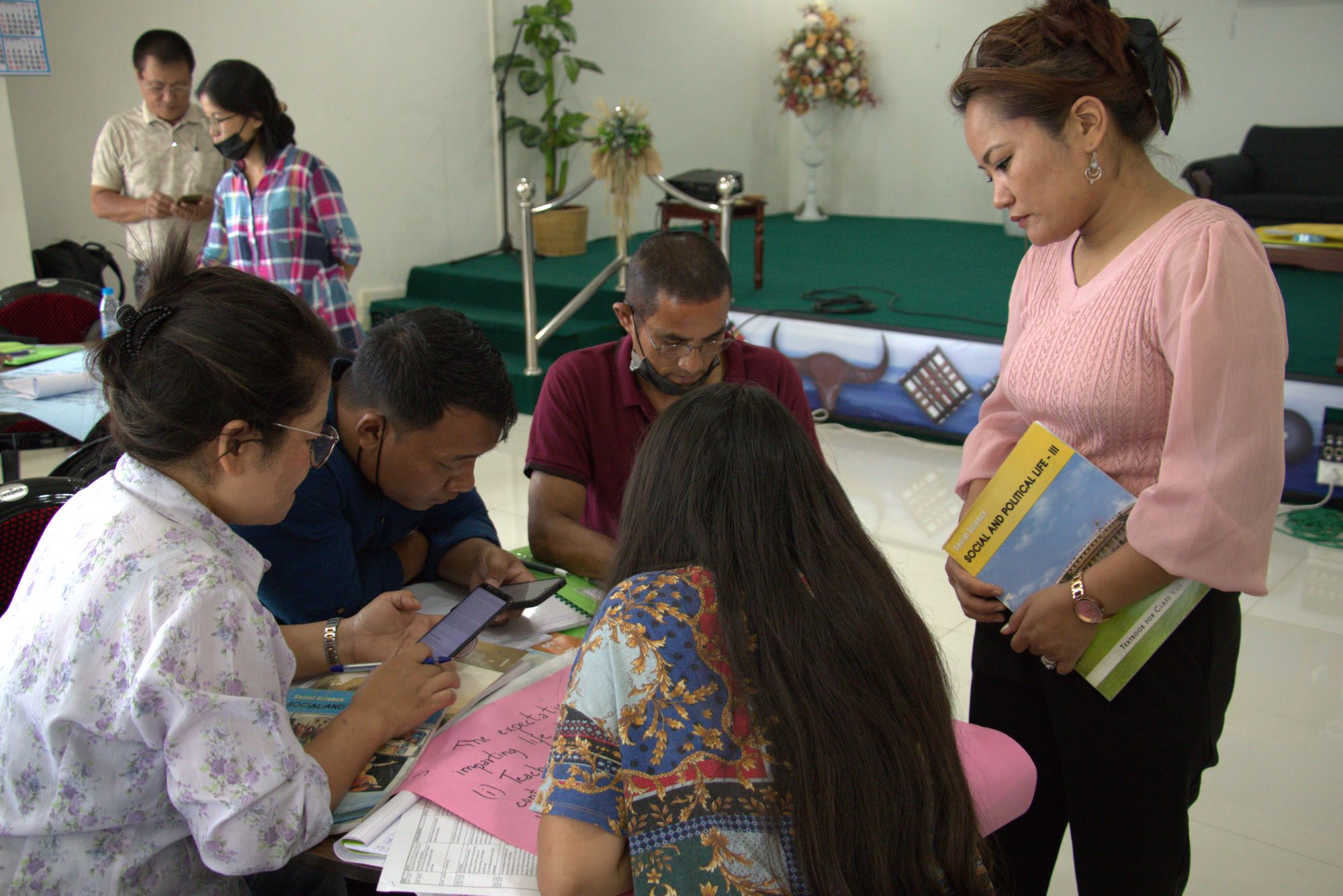
Implementation Approach
The Foundation adopts an activity-based approach to building life skills by providing a structured and supportive environment for adolescents to learn and practice these skills. The curriculum comprises games and sessions. Their innovative and scalable delivery approach equips government school teachers to impart life skills education to adolescents from grades 6 to 10. It builds the capacity of the government school system and creates a cascading effect wherein a teacher becomes the catalyst of change for countless students. This approach also strengthens the student-teacher relationship.
The SCALE program is anchored on engaging with the educational system, School Management Committees, parents, and the community. As parents are direct stakeholders in adolescents’ development of adolescents, they must understand the role they play in nurturing development and supporting their children to complete their education so they can build better futures.
The adolescents often come from households with limited or no space for them to study. By encouraging them to create a personal study corner in their home, the organization boosts their interest in learning, raises their confidence to continue self-learning, and asserts their desire to study.
Under the program in Maharashtra, Magic Bus India Foundation conducts Bal Panchayat elections in government schools. Through this intervention, the organization aims to raise awareness about the Indian democratic system and processes in adolescents. In addition, it builds leadership skills, encourages active citizenship, and moulds them to become agents of change. Under the program, the Foundation also creates peer support structures where adolescents can encourage others to learn and build their interpersonal skills. The organization orients system-level officials and cluster heads on life skills, enabling a collective approach to planning and monitoring school training and interventions. If government schools adopt the program as part of the curriculum, life skills education can be scaled nationally.
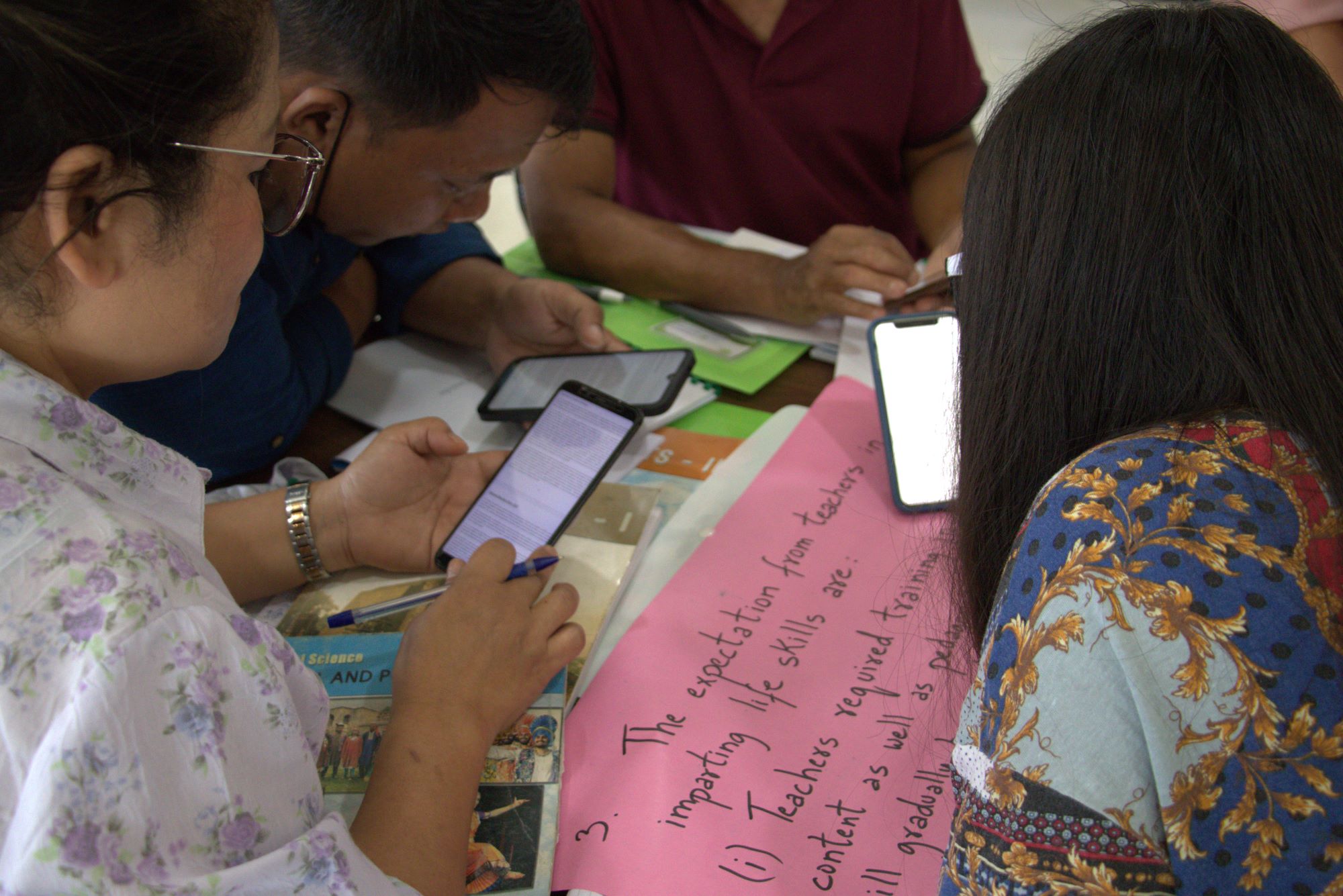
In order to mainstream life skills education in line with the new National Education Policy commitments, the program is supported by the Governments of Maharashtra, Mizoram, and Rajasthan. Four esteemed foundations also support them; Azim Premji Foundation, Echidna Giving, Michael & Susan Dell Foundation, and the Kadoori Charitable Foundation. Several long-term funders, including Nestle, JSW Foundation, WPP Foundation, Mondelez India, and Dhanam Foundation, also back the Foundation’s programs.
Impact
- Since 1999, Magic Bus India Foundation has worked with over one million adolescents across 1300 government schools, supporting each for three years.
- 98% of adolescents in the Foundation’s programs showed a 46% improvement in school regularity.
- 75% of adolescents completed secondary education until grade 10 and transitioned to higher secondary, compared to the national average of 69%.
- The adolescents have a 26% improvement in perceived self-efficacy and 17.5% in resilience.
The organization aims to take life skills education to nearly 2 million adolescents in the next 3-5 years.
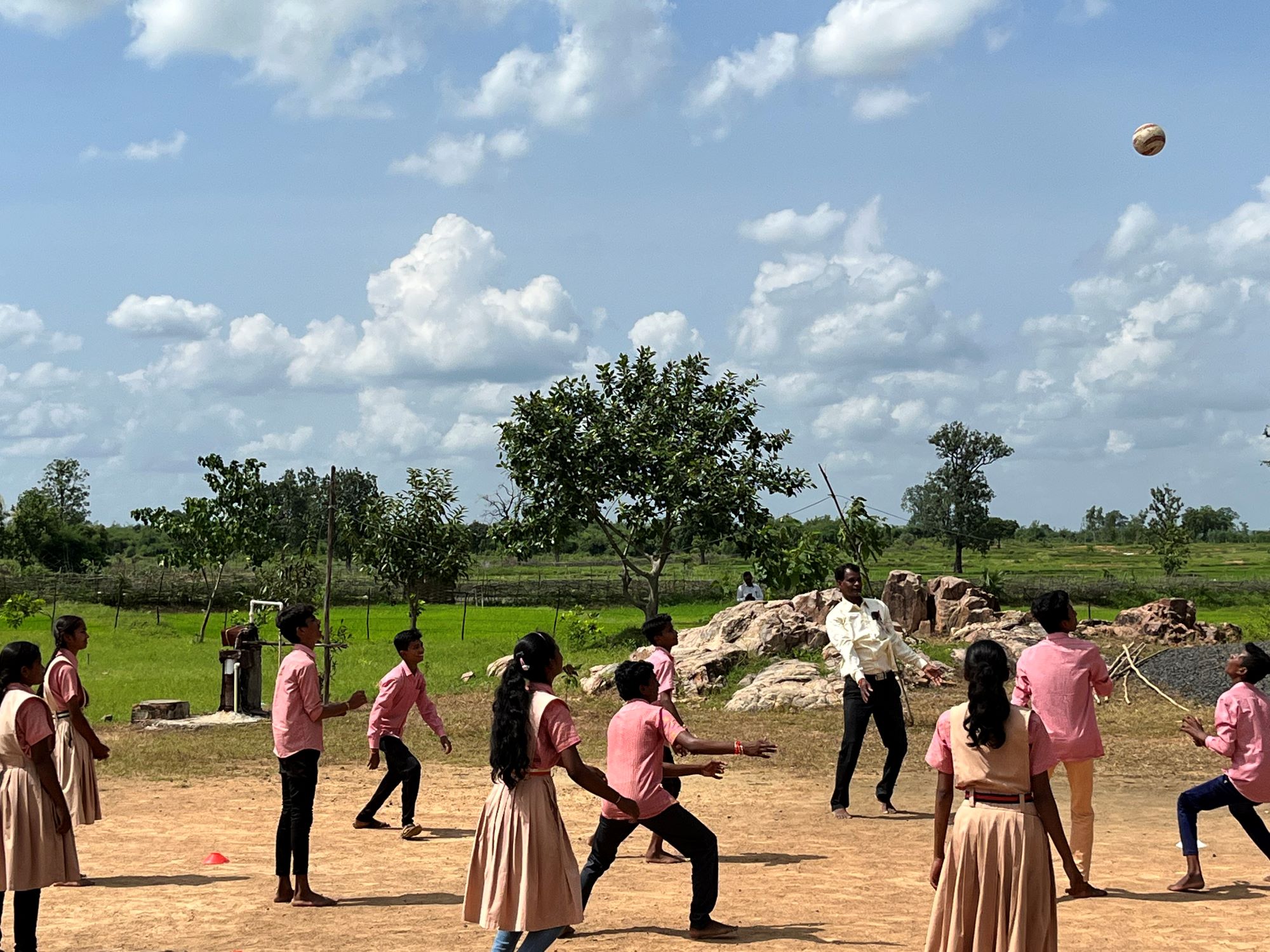
SDG Linkages
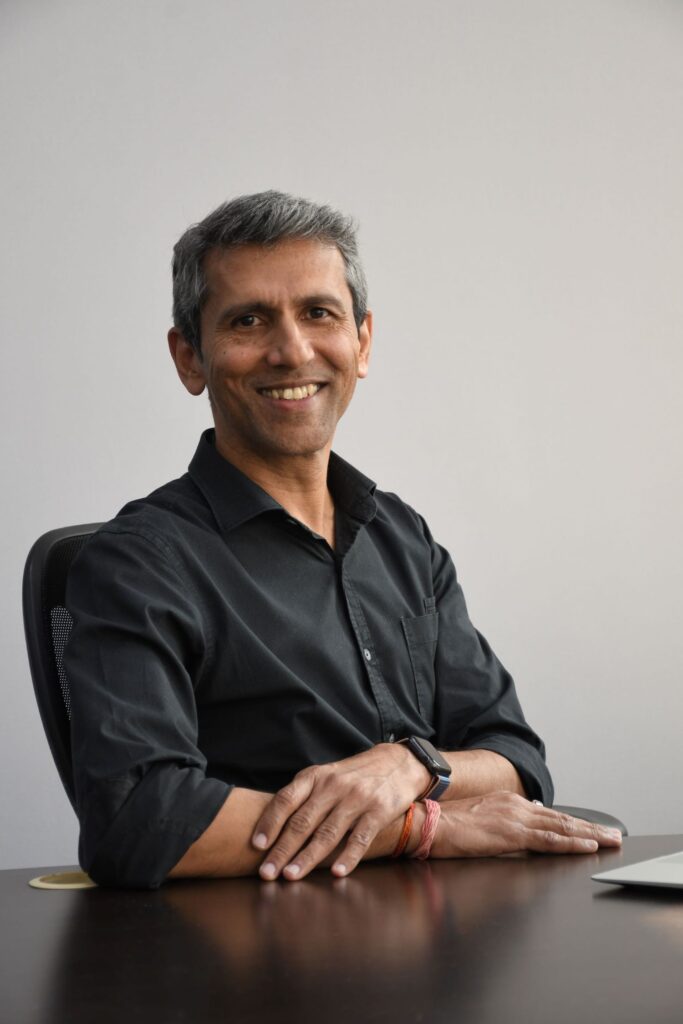
The Foundation’s interventions are linked with the following SDGs:
- Sustainable Development Goal 1: End poverty in all its forms everywhere
- Sustainable Development Goal 4: Ensure inclusive and equitable quality education and promote lifelong learning opportunities for all
- Sustainable Development Goal 5: Achieve gender equality and empower all women and girls
- Sustainable Development Goal 8: Promote sustained, inclusive, and sustainable economic growth, full and productive employment, and decent work for all
“SCALE was selected by HundrEd.org as one of the top 100 education innovations out of 3000+ global organizations. The recognition is a validation that our program delivery model is effective, innovative, and scalable. Embedding this in the government school system will go a long way to address India’s education challenges and kindle systemic change,” shares Jayant Rastogi, Global CEO, Magic Bus India Foundation.
Sources:
[1] Census 2011
[2] Secondary Education Flash Statistics 2014-15. DISE
[3] India Skills Report
[4] World Economic Forum Study, 2021
